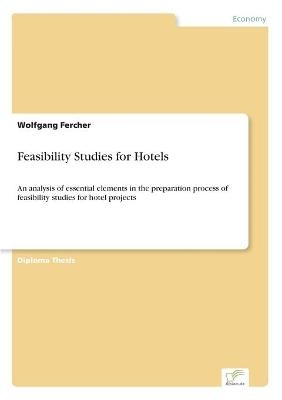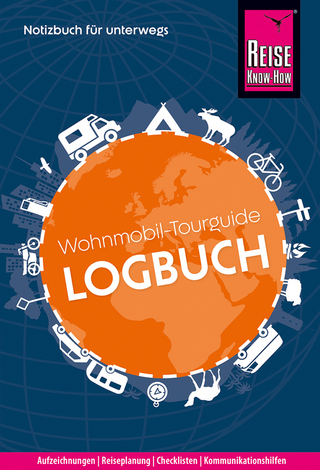
Feasibility Studies for Hotels
An analysis of essential elements in the preparation process of feasibility studies for hotel projects
Seiten
2006
|
06005 A. 5. Auflage
diplom.de (Verlag)
978-3-8386-9914-1 (ISBN)
diplom.de (Verlag)
978-3-8386-9914-1 (ISBN)
Diploma Thesis from the year 2005 in the subject Tourism, grade: 2,0, University of applied sciences (unbekannt), language: English, abstract: Inhaltsangabe:Abstract:
The intensity of competition in the tourism business, especially in the hotel industry has continuously grown during the last years. This development leads to the situation that capital investments in the hospitality industry are connected with ever increasing risks. In order to minimize these risk potentials, a detailed evaluation of the competitiveness and market compatibility of a planned project is an essential part of any project development process. Those analyses are covered in the course of a feasibility study which encloses all aspects that influence the success of a hotel project. In this context, a feasibility study serves as an information tool for project developers, investors, tenants, hotel operators and financiers in order to make decisions with regard to a specific hotel project.
The preparation of a feasibility study requires the combination of a multitude of aspects, hence input from all participants in the project development process. Getting hold of information and the appropriate usage of this information is crucial in order to ensure the success of a study. The main objective of this diploma thesis is to identify the most important and current issues in feasibility evaluation of hotel projects. In practice, many studies are prepared following a fixed model, which has not been changed for years. However, the hospitality industry is highly competitive and dynamic, new additions to the existing supply therefore need to be analyzed very carefully. The focus of this diploma thesis is specifically put on the hospitality industry. This means that feasibility evaluation for other types of project development in the tourist industry is not subject to this study. The aim of the thesis is on the one hand to point out aspects that have to be taken into consideration in any study, and to give suggestions for improvements on the other hand. The author has laid down the following four hypotheses that serve as the main source for the research questions.
- Hypothesis 1: The sensitivity analysis is the most important component of a feasibility study.
- Hypothesis 2: A feasibility study is the most important decision making factor for the investor in a hotel project.
- Hypothesis 3: If the results of a feasibility study seem to turn out negative, then the operative concept of the project is changed.
- Hypothesis 4: The level of the construction cost is the factor that is most difficult to estimate and is therefore the most frequent source of mistakes in the hotel development process.
The research work is divided into hermeneutic and empiric parts which are not secluded from each other but interact and support statements. An expert questionnaire was designed in order to identify current industry issues. This questionnaire was sent out via e-mail to selected groups of experts including hospitality consultants, hotel operating companies, investors and financiers and project development companies. The total number of questionnaires amounted to 88 and a return rate of about 40% was achieved.
The theoretical principles of feasibility studies are tackled in chapter 2. Basically, there is no general definition for the term feasibility study and the terminology varies significantly. Feasibility studies can be described as market demand studies or as studies comprising a detailed market analysis and thorough financial forecasts. It must be emphasized that a feasibility study as known in the international context is much more than a study that proves whether a project is feasible . A feasibility report can answer a number of questions as to the market, rates achievable and the possible positioning of a project.
In the subsequent chapter the overall concept of project development in the hotel in...
The intensity of competition in the tourism business, especially in the hotel industry has continuously grown during the last years. This development leads to the situation that capital investments in the hospitality industry are connected with ever increasing risks. In order to minimize these risk potentials, a detailed evaluation of the competitiveness and market compatibility of a planned project is an essential part of any project development process. Those analyses are covered in the course of a feasibility study which encloses all aspects that influence the success of a hotel project. In this context, a feasibility study serves as an information tool for project developers, investors, tenants, hotel operators and financiers in order to make decisions with regard to a specific hotel project.
The preparation of a feasibility study requires the combination of a multitude of aspects, hence input from all participants in the project development process. Getting hold of information and the appropriate usage of this information is crucial in order to ensure the success of a study. The main objective of this diploma thesis is to identify the most important and current issues in feasibility evaluation of hotel projects. In practice, many studies are prepared following a fixed model, which has not been changed for years. However, the hospitality industry is highly competitive and dynamic, new additions to the existing supply therefore need to be analyzed very carefully. The focus of this diploma thesis is specifically put on the hospitality industry. This means that feasibility evaluation for other types of project development in the tourist industry is not subject to this study. The aim of the thesis is on the one hand to point out aspects that have to be taken into consideration in any study, and to give suggestions for improvements on the other hand. The author has laid down the following four hypotheses that serve as the main source for the research questions.
- Hypothesis 1: The sensitivity analysis is the most important component of a feasibility study.
- Hypothesis 2: A feasibility study is the most important decision making factor for the investor in a hotel project.
- Hypothesis 3: If the results of a feasibility study seem to turn out negative, then the operative concept of the project is changed.
- Hypothesis 4: The level of the construction cost is the factor that is most difficult to estimate and is therefore the most frequent source of mistakes in the hotel development process.
The research work is divided into hermeneutic and empiric parts which are not secluded from each other but interact and support statements. An expert questionnaire was designed in order to identify current industry issues. This questionnaire was sent out via e-mail to selected groups of experts including hospitality consultants, hotel operating companies, investors and financiers and project development companies. The total number of questionnaires amounted to 88 and a return rate of about 40% was achieved.
The theoretical principles of feasibility studies are tackled in chapter 2. Basically, there is no general definition for the term feasibility study and the terminology varies significantly. Feasibility studies can be described as market demand studies or as studies comprising a detailed market analysis and thorough financial forecasts. It must be emphasized that a feasibility study as known in the international context is much more than a study that proves whether a project is feasible . A feasibility report can answer a number of questions as to the market, rates achievable and the possible positioning of a project.
In the subsequent chapter the overall concept of project development in the hotel in...
| Sprache | englisch |
|---|---|
| Maße | 148 x 210 mm |
| Gewicht | 195 g |
| Themenwelt | Reisen ► Kartenzubehör / Sonstiges |
| ISBN-10 | 3-8386-9914-9 / 3838699149 |
| ISBN-13 | 978-3-8386-9914-1 / 9783838699141 |
| Zustand | Neuware |
| Haben Sie eine Frage zum Produkt? |
Mehr entdecken
aus dem Bereich
aus dem Bereich
Buch | Hardcover (2024)
Reise Know-How (Verlag)
14,95 €
